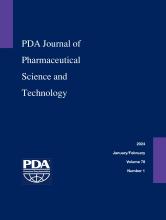Abstract
In the past few years, there have been several instances of illicit pharmaceutical manufacturing in Japan, and there is a growing awareness of the importance of corporate compliance and pharmaceutical manufacturing and quality controls. One cause of illicit manufacturing is the inadequate development of quality culture. This study focuses on the degree of quality culture development in Japanese pharmaceutical companies manufacturing generic drugs. Because no evaluation index for Japan can visualize the degree of quality culture development in each company, this study sought to establish this index to utilize it as a tool for evaluating the degree of quality culture development that would enable each company to continuously monitor and improve its own. We conducted a questionnaire survey among Japan Generic Medicines Association members to evaluate the degree of their quality culture development. The questionnaire contained 28 questions in five evaluation categories. Potential indicators of quality culture development included “Employee growth and satisfaction”; “Management commitment”; “Improvement activities”; “Communication”; and “Environment, health, and safety.” We obtained 294 responses from 37 Marketing Authorization Holder (MAH) and 61 manufacturing sites. Respondents were classified by roles of management, manager, and nonmanager. The results confirmed the current status of quality culture development efforts, showing that important messages such as the corporate philosophy as communicated by the management is well known, awareness of quality culture development level differs by role, and appropriate resources are not adequately allocated to employees or facilities. Based on the results, use of the index of quality culture development helped to make relative comparisons and visualize the areas to be addressed for quality culture development. This study established and visualized the index for the degree of quality culture development in domestic generic drug manufacturing companies and we hope this indicator becomes a useful tool for evaluating a company’s quality culture development level.
- Good manufacturing practice
- Quality culture
- Quality culture assessment tool
- pharmaceutical quality system
- Questionnaire survey
- Illicit manufacturing
- Employee engagement
- © PDA, Inc. 2024
PDA members receive access to all articles published in the current year and previous volume year. Institutional subscribers received access to all content. Log in below to receive access to this article if you are either of these.
If you are neither or you are a PDA member trying to access an article outside of your membership license, then you must purchase access to this article (below). If you do not have a username or password for JPST, you will be required to create an account prior to purchasing.
Full issue PDFs are for PDA members only.
Note to pda.org users
The PDA and PDA bookstore websites (www.pda.org and www.pda.org/bookstore) are separate websites from the PDA JPST website. When you first join PDA, your initial UserID and Password are sent to HighWirePress to create your PDA JPST account. Subsequent UserrID and Password changes required at the PDA websites will not pass on to PDA JPST and vice versa. If you forget your PDA JPST UserID and/or Password, you can request help to retrieve UserID and reset Password below.






